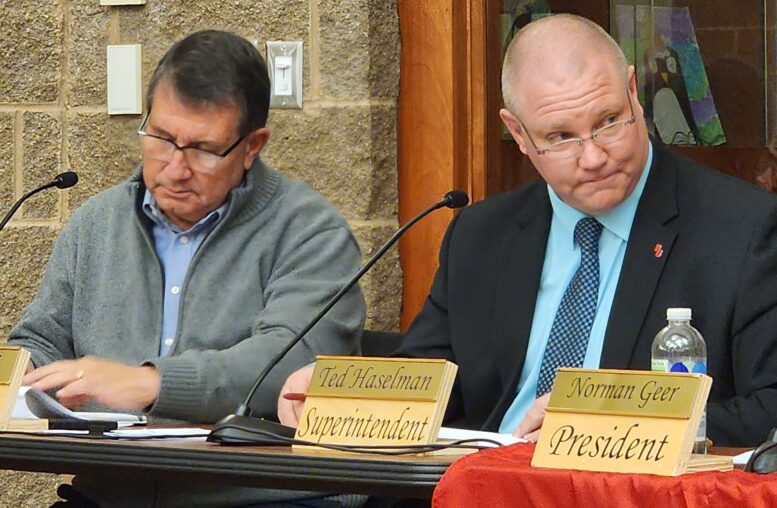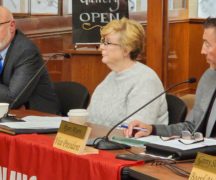By JAN McLAUGHLIN
BG Independent News
On Tuesday evening, Bowling Green Superintendent Ted Haselman will paint the grim picture of $2.6 million in cuts to the district if the income tax levy for operations fails in May.
“The Board of Education and I believe that it’s important the community knows exactly what’s at stake,” Haselman said Monday afternoon.
After the district’s operating levy failed in November, school leaders are faced with two options – increase revenue or make drastic budget reductions, he said.
At Tuesday’s school board meeting, Haselman will present proposed cuts – if the May 6 levy fails. The picture is not pretty.
In order to maintain a balanced budget, if the levy fails, several staff positions are on the chopping block – including teachers, administrative, and positions touching practically every corner of school functions, like custodians, nurses, and bus drivers.
Extra-curricular activities will disappear. That means no athletics and no arts.
And the brakes will be put on some school transportation for students. Students who ride the bus will likely spend more time on their routes, and the school day start and end times will likely have to change for middle school students.
Haselman has repeatedly said that voters need to know how the district will have to change if the levy is not passed.
“They’re the ones who ultimately make the decision of what the district looks like,” he said.
In December, BG Board of Education voted to put the income tax levy for operating funds back on the ballot in May. If the levy passes, the serious cuts will be avoided.
Haselman noted that the levy attempt in November failed by just 108 votes – 49.63% to 50.37%. The district’s needs have not changed since then, he stressed.
“We cannot have what we cannot pay for,” Haselman said.
The board took steps in December to make the levy more palatable to some voters. For those who believe that no levy should be for a continuing period of time, the board agreed to limit the levy to five years.
For those who have demanded that the district use its pipeline tax revenue for operating expenses, rather than for building maintenance costs, the board agreed to shift $1 million of the pipeline money into operating funds – thus reducing the necessary cuts to $2.8 million rather than $3.8 million.
And for those who have been clamoring for more transparency of district finances, Treasurer Matt Feasel has been making the district’s monthly check register available for public viewing.
“We have been discussing this openly in public for three years,” board member Tracy Hovest said in December.
“No one likes paying more taxes,” she said. But reducing personnel means bigger class sizes, loss of programs, and demoralizing staff.
“We must choose the path that serves the long-term interest of our district,” Hovest said.





